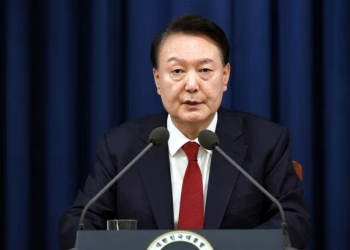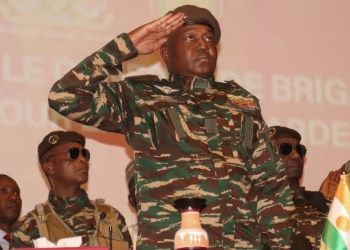Wiper leader Kalonzo Musyoka is taking a firm stance against the push for a unity government, concerned that joining President William Ruto’s administration could jeopardize his ambitions for the 2027 presidential election. Advisers to the former vice president have cautioned against entering any agreements with Ruto’s government, believing it would significantly undermine his chances for success.
Kalonzo’s team aims to avoid the political missteps of Azimio leader Raila Odinga, whose past alliances reportedly hindered his presidential bids. In 2018, Raila entered a notable agreement with then-President Uhuru Kenyatta, known as the “handshake,” where he supported the Jubilee government. This decision is believed to have burdened him politically, ultimately affecting his chances to succeed Uhuru.
Political analysts suggest that the handshake contributed to Raila’s narrow loss in the 2022 presidential election, despite his backing from Uhuru. During the campaign, Raila faced blame for Jubilee’s shortcomings, putting him in a difficult position as Ruto gained public support.
Kalonzo perceives a stronger opportunity to challenge Ruto in 2027 by remaining outside the government and expanding his Azimio coalition beyond his traditional strongholds. With Raila’s recent rapprochement with Ruto, Kalonzo’s camp believes he could potentially inherit Raila’s constituency if he stays in opposition.
There is also optimism that the younger generation, or Gen Z, would rally behind Kalonzo in 2027 if he maintains a firm stance against the Kenya Kwanza administration. Key ally and Kitui Senator Enock Wambua stated that the Wiper party will neither join the government nor engage in dialogue, deeming such calls unwise and ill-timed.
Kalonzo, who previously ran for president in 2007 and served as vice president in the Grand Coalition Government, is intent on making another presidential bid in 2027. His advisers have firmly rejected any cooperation with the Kenya Kwanza government, fearing it could bring the “curse of incumbency,” where leaders associated with a failing administration are often rejected by voters.
Makueni Senator Dan Maanzo emphasized the importance of distancing Kalonzo from Ruto, asserting that aligning with the president would be detrimental to his political future. He noted that the decision has been ratified by the Wiper National Executive Council.
Wiper’s opposition to a unity government coincides with concerns in Azimio that Raila may not run in the 2027 elections due to age. Currently, Raila is backed by Ruto for the African Union Commission chairperson role, which could further shift the political landscape.
Kalonzo’s camp remains cautious, recognizing that collaborating with Ruto could weaken his position to critique the administration effectively. Political analyst Alexander Nyamboga suggested that while Kalonzo aims to consolidate his support within the opposition for 2027, he may struggle to present a formidable challenge to Ruto without the backing of Gen Z.
Several politicians, including Narc Kenya leader Martha Karua and DAP-K boss Eugene Wamalwa, have also opposed calls for national dialogue, reflecting a broader skepticism about uniting with the current government.
Kalonzo Musyoka’s Stance: Navigating the Push for Unity Government
Plugin Install : Subscribe Push Notification need OneSignal plugin to be installed.















